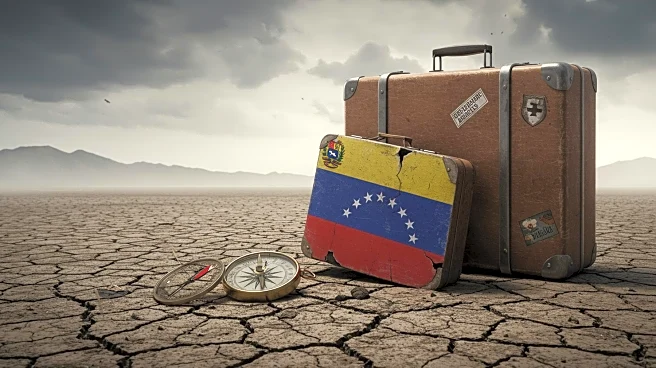What is the story about?
What's Happening?
Venezuelan migrants returning to their home country are encountering severe economic challenges and harsh living conditions. Many had left Venezuela due to its political and economic crisis, hoping to find better opportunities in the United States. However, changes in U.S. immigration policy under President Trump have led to increased deportations, forcing many migrants back to Venezuela. Upon return, they face a currency crisis, inflation, and meager wages, making it difficult to afford basic necessities.
Why It's Important?
The situation of returning Venezuelan migrants highlights the complex interplay between international migration policies and domestic economic conditions. The U.S. policy shift has significant implications for migrants who had hoped to escape Venezuela's crisis. Their return exacerbates the already dire economic situation in Venezuela, potentially leading to increased social unrest and further migration attempts. This development also raises questions about the ethical responsibilities of countries in managing migration and supporting vulnerable populations.
What's Next?
The Venezuelan government may need to implement measures to support returning migrants, such as economic aid or job creation programs. International organizations might step in to provide humanitarian assistance. The ongoing economic crisis in Venezuela could lead to further migration attempts, challenging regional stability and prompting diplomatic discussions on migration policies.
Beyond the Headlines
The return of migrants to Venezuela could lead to long-term shifts in the country's demographic and economic landscape. The reliance on informal economies and loan sharks may increase, affecting social structures and community resilience. The situation also raises ethical concerns about the treatment of migrants and the responsibilities of host countries in ensuring humane deportation processes.
















